May 12-13, 2022
Organized and hosted by PennWest Clarion, PA (USA)
This is a HYBRID Conference, meaning that you can participate both in-person and virtually via zoom
The purpose of this conference is to share ideas on the importance of global diversity and inclusion in higher education sector and to promote learning and training on this critical issue among faculty and students. The goal is to share knowledge, research findings, build community, and collaborate to advance international diversity, equity, and inclusion in global education and cultural exchange.
Dear Conference Attendees,
Please find below the Zoom links for day-wise conference session as per the room numbers on Thursday (May 12) and Friday (May 13). You will have to click on the link and use PASSCODE to join a particular session. Webinar on Thursday does not require a passcode. You will find the session details in the attached conference program
Keynote and Panel discussion (Webinar): Thursday (May 12) at Noon (EDT - New York time): https://pennwest-edu.zoom.us/s/97698742112
Friday (May 13) at 8:00AM – Room#250 (EDT - New York time): https://pennwest-edu.zoom.us/s/94545529954 Meeting ID: 94545529954 Passcode: 082806
Friday (May 13) at 8:00AM – Room#252 (EDT - New York time): https://pennwest-edu.zoom.us/s/98013096263 Meeting ID: 98013096263 Passcode: 447957
Friday (May 13) at 8:00AM – Room#248 (EDT - New York time): https://pennwest-edu.zoom.us/s/91363530435 Meeting ID: 91363530435 Passcode: 434872
Thank you for your patience and highly appreciate your participation in this conference.
See you at the conference in-person or on Zoom
Tentative Schedule
- Day #1 - May 12 (8:30 am – 12:00 pm): Training on GLOBAL DIVERSITY AND INCLUSION IN HIGHER EDUCATION (Certificate provided) – Registration Required (Free for PASSHE members)
- Day #1 - May 12 (12 noon – 3:00 pm): Keynote sessions and panel discussion (PA, PASSHE,
& Corporate Leaders) – Registration Required (Free for ALL)
- NOTE: Campus Tour to all speakers (by student volunteers with a faculty or administrator)
- Day #1 - May 12 (3:00 pm – 5:00 pm): Training (continued) on GLOBAL DIVERSITY AND INCLUSION IN HIGHER EDUCATION (Certificate provided) – Registration Required (Free for PASSHE members)
- Day #2 - May 13 (8:30 am – 5:30 pm): Research Paper Presentations (FOUR tracks – Face-2-Face and Virtual on Zoom - Certificate provided) – Registration Required (Free for PASSHE members)
+ Zoom Links
Dear Conference Attendees,
Please find below the Zoom links for day-wise conference session as per the room numbers on Thursday (May 12) and Friday (May 13). You will have to click on the link and use PASSCODE to join a particular session. Webinar on Thursday does not require a passcode. You will find the session details in the attached conference program
Keynote and Panel discussion (Webinar): Thursday (May 12) at Noon (EDT - New York time): https://pennwest-edu.zoom.us/s/97698742112
Friday (May 13) at 8:00AM – Room#250 (EDT - New York time): https://pennwest-edu.zoom.us/s/94545529954 Meeting ID: 94545529954 Passcode: 082806
Friday (May 13) at 8:00AM – Room#252 (EDT - New York time): https://pennwest-edu.zoom.us/s/98013096263 Meeting ID: 98013096263 Passcode: 447957
Friday (May 13) at 8:00AM – Room#248 (EDT - New York time): https://pennwest-edu.zoom.us/s/91363530435 Meeting ID: 91363530435 Passcode: 434872
Thank you for your patience and highly appreciate your participation in this conference.
See you at the conference in-person or on Zoom
+ Tentative Schedule
Keynote Session:
- Senator Haywood (Keynote speaker)
- Dr. Pearson, Vice Chancellor PASSHE (Keynote speaker)
Panel Discussion on Global DEI on Higher Education
- Ms. JD Dunbar (Penn State)
- Mr. Larry Pickett (Carnegie Mellon)
- Ms. Patrice D’Eramo (Cisco Systems)
- tonya thames taylor
+ Keynote Speakers
Keynote Speaker: Senator Art Haywood
Date & Time: May 12 at noon - 2:00 p.m.
Venue: Clarion University Campus, Clarion, PA
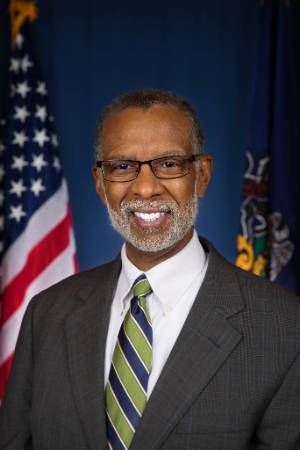
Senator Haywood Bio (Updated July 2021)
Art Haywood was raised by his mother, a public-school teacher, who instilled in him the value of hard work and getting a quality education. He began working at the age of nine as a newspaper delivery boy.
After receiving his bachelor’s degree and graduating Magna Cum Laude from Morehouse College, Art went on to attend the London School of Economics as a Marshall Scholar to complete his master’s degree, and then graduated from the University of Michigan Law school in 1985.
Art began working at Community Legal Services, saving families from home foreclosure. He also worked at Regional Housing Legal Services, and in private practice as a lawyer, assisting nonprofit organizations to revitalize neighborhoods. Art has previously served as legal counsel to Esperanza, a community development organization in the Hunting Park section of North Philadelphia.
In 2009, Art was inspired by President Barack Obama to run for township commissioner in Cheltenham. He won that election, and his work as commissioner included divesting pension money from gun-makers, starting the Sustainable Cheltenham initiative, and creating a non-discrimination ordinance for sexual orientation and gender identity. After serving as President of the Board of Commissioners in Cheltenham, he was elected State Senator for the 4th district in 2014.
Through his leadership as a State Senator, Art has worked to reduce homelessness through expansion of the Pennsylvania Housing Affordability and Rehabilitation Enhancement Act, passed requirements to test for lead in water in Pennsylvania schools, and successfully championed legislation to relocate domestic violence survivors living in public housing.
Art completed his Poverty Listening Tour in 2019 and issued a report with 20 recommendations to reduce poverty in every community of Pennsylvania. In 2020, he fought for $193 million in federal CARES Act funds to be allocated to prevent evictions, foreclosures, and homelessness in Pennsylvania during the COVID-19 pandemic. In December 2020, the Pennsylvania Housing Finance Agency awarded Art the Award of Excellence for his advocacy for affordable and fair housing and homelessness prevention.
Art is the author of Campaigns for COMPASSION: A Story of Community Change, published in January 2021. The Arc of Pennsylvania honored him with their 2021 “Legislator of the Year” award for demonstrating exceptional leadership in addressing the needs of Pennsylvanians with intellectual and developmental disabilities.
In February 2021, Governor Tom Wolf appointed Art to his COVID-19 Vaccine Task Force to improve the vaccine distribution in Pennsylvania. City & State Magazine listed him on the Pennsylvania Healthcare Power 100 List in their July 2021 issue for his work as the minority chair of the Senate Health & Human Services Committee and member of the task force.
Most recently, Art organized with African American college students to end campus racism at Pennsylvania’s State System of Higher Education universities. He was instrumental in the state legislature passing $200 million for PASSHE, which includes funding for Diversity, Equity, and Inclusion. This will ensure the safety and success of Black, Brown, and White students on the 14 college campuses.
Art has three adult children and resides in Wyncote with his wife for 30 years, Julie.
Keynote Speaker: Dr. Denise Pearson
Date & Time: May 12 at noon - 2:00 p.m.
Venue: Clarion University Campus, Clarion, PA
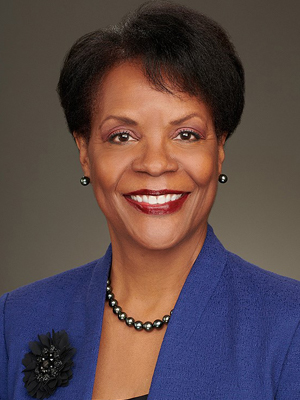
Dr. Denise Pearson joined the State System in August 2020 with three decades of experience in the classroom and as campus leader, including having served as assistant provost of faculty affairs and then interim dean/senior associate dean of the School of Education and Human Performance at Winston-Salem State University and associate academic dean at the University of Denver. She previously served as vice president for academic affairs and equity initiatives at the State Higher Education Executive Officers Association (SHEEO).
Dr. Pearson earned her Ph.D. in administration and supervision of education from Marquette University and master's degrees in conflict resolution from the University of Denver and educational administration from Concordia University. Her undergraduate studies were at the State University of New York at Delhi and Pace University.
+ Panel Discussion
Panel discussion on Global Diversity and Inclusion in Higher Education: Issues and Challenges
JD Dunbar
Director, Pennsylvania Rural-Urban Leadership Program Penn State Extension Senior
Educator

JD is a wordsmith by profession and a speaker/educator by trade. She claims that she's been trying her whole life to prove that her parents didn’t pin her with a misnomer— “Joy.” Her background is an eclectic blend that incorporates time served in industry, in Communication for the General Electric Company; time served in community service, as the Director of the Clarion Chamber of Commerce; and a stint in private business, as an Advertising Manager for Paul Weaver Jewelers. She is currently the Program Director of RULE, the Pennsylvania Rural-Urban Leadership Program, based at Penn State, and has held that position for 32 years. Her Penn State title is Senior Extension Educator where she is engaged in leadership development programming
and writing impact articles for both the university and external audiences. Her robust purview of responsibilities comes with a barometer to ensure each day looks vibrantly different. She is an international public speaker on leadership & communication. A 10 year member of the National Speakers Association, she has been featured in keynotes in six countries and 20 states. A trustee of the PA State System of Higher Education for 12 years, JD is in her fifth term as Chairwoman for Clarion University Council of Trustees. She has been active in the PA Council of Trustees (PACT) on the state level, developing trustee position description, trustee accountability forms and Council of Trustee evaluations. She is currently chairing the Governance Committee on a quest to elevate Student Trustee visibility.
Educated at Clarion University (BA & MS) and Penn State (ABD), JD completed a Kellogg fellowship in leadership development at the National Center for Food and Agricultural Policy in Washington, D.C. She is an alumna of the Pennsylvania’s RULE Leadership Program, Class II.
She sums up her job and advocacy roles by saying that she is a, “leadership grower.”
JD has been presented with several distinctions:
- Recent gubernatorial reappointment to successive term as Pennsylvania State System Trustee, Clarion University, by Governor Tom Wolf (1-2020, six year term).
- Elected Chair of Clarion University Council of Trustees—2017, 2018, 2019, 2020 & 2021.
- Named to Phi Kappa Phi Honors Society, Clarion Chapter for her efforts in Community Leadership— 2017
- Leadership In Action Award on behalf of RULE, Penn State Ag Council—2015
- Named by former Governor Ed Rendell to Clarion University Council of Trustees; reappointed by former Governor Tom Corbett & Governor Tom Wolf—2009-2021.
- Outstanding International Leadership Director Award—2000, International Association of Programs for Agricultural Leadership—IAPAL
- Member of the Governor’s Rural Advisory Council—2004-2011
- DeBoer Distinguished Teaching Award from Penn State-1989
- Successful nomination of Tara Homan, RULE Program Assistant, for the International Association of Programs for Agricultural Leaders (IAPAL) Charter Program Support Award (10-2019).
- Successful nomination of Milissa Bauer, Vice Chair of the Clarion University Trustees & Vice President of Kriebel Minerals for the Women of Influence Award for Pittsburgh Region (1-2020).
A once avid distance runner, JD has completed twenty half marathons and six full marathons. She is currently cross training by boxing and weightlifting. She is a fitness advocate, proud that she has been directed by a personal trainer for 27 years. She lives in an Amish built home called the Happy Valley Villa with her forever new husband, Hank, and Whiskey River (canine, not libation). 04/2021
Mr. Larry Pickett
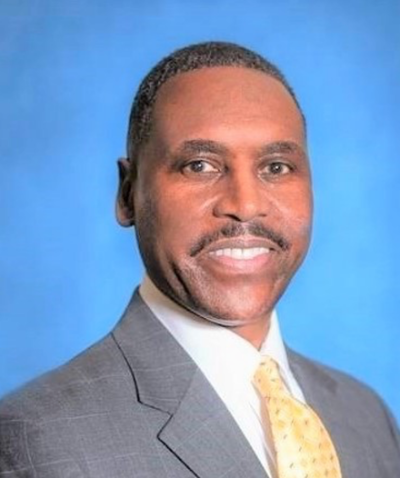
Larry is a Process Improvement Project Manager at Carnegie Mellon University (CMU). He manages projects that support process improvement initiatives including system implementations at CMU. He uses statistical analysis, LEAN and Six Sigma methodologies to provide expert process improvement (PI) and project management services for complex projects. Larry leads projects from their original state to final implementation, integrating structured methodologies and using PI techniques.
Larry is a Certified Lean Six Sigma Master Black Belt (CLSSMBB) and Certified Project Manager who manages processes designed to improve sponsored project accounts and payroll systems.
He also works closely with the CMU Research Group (Delphi) to track and perform data analysis used for the COVID-19 Indicators Map. These metrics are used to track symptoms across the United States. Larry monitors the Epidata API process anomalies used to track COVID-19 responses.
During his professional career, he has also served as a senior PI engineer and a global PI consultant who has managed projects in the USA, Philippines, Europe, Mexico, and Canada. Larry is a member of the Carnegie Mellon University Business Innovation Office.
Larry earned his M.B.A. degree with emphasis in Management of Technologies from California University of Pennsylvania, his M.S. degree in Leadership and Liberal Studies from Duquesne University, and his B.A. degree from Clarion University.
Larry is a member of the Clarion University Council of Trustees, Juran Institute, Pittsburgh Chess Club, and a Life Member of Kappa Alpha Psi Fraternity, Inc. He and his wife Melissa reside in Pittsburgh. They are the proud parents of two daughters, Erica and Dilana.
https://lpickett7.wixsite.com/website
Patrice D’Eramo
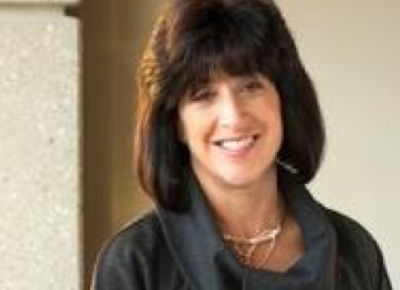
Patrice is recognized as an inspiring Information Technology Sales and Marketing leader who analyzes complex business challenges, creates and drives innovative solutions, while delivering impactful results. At Cisco, she was VP of Americas Marketing and Communications organization, which comprises the US, Canada, and Latin America. She lead a 200+ person team responsible for strategic marketing and communications for $29 billion in annual sales that focused on delivering personalized, real-time compelling customer experiences.
Previously at Cisco, Patrice served as Sr. Director of Marketing for Cisco’s $5 billion U.S. public sector business. Prior to Cisco, she was Director of U.S. federal and public sector marketing and a sales account executive, at Hewlett Packard winning HP Achievers Club each year and recognized as HP Federal Manager of the Year. Patrice has also held sales and management positions at Entex Information Services.
Patrice has a passion for making a difference in her community. She held leadership positions on Cisco Connected Women Advisory Board, Cisco Connected Women ERG, Cisco Empowered Women’s Network, Million Women Mentors, and Women’s Business Collaborative. She advocates for mental & physical well-being with the American Foundation for Suicide Prevention and University of MD Advanced Fetal Care Center Advisory Board. She is a board member at Clarion University School of Business and American Red Cross and a volunteer at Walter Reed Medical Center & the Maryland Food Bank.
She has been awarded “Women in Technology Corporate Leadership Award”, Ingram Micro’s “Women in Technology Giving Back” Award, YWCA’s “Tribute to Women and Industry (TWIN)” Award, Federal Computer Week’s “Federal 100” Award, the “Idealist of the Year” by Washington D.C. and the Cisco Multiplier Effect Award inspiring a legacy of diversity and inclusion.
Patrice has earned a bachelor’s degree in business administration from PennWest Clarion and other accreditations with Northwestern Chief Marketing Officer Program and International Women’s Forum Fellows Program attending Harvard Business School and INSEAD.
tonya thames taylor

tonya thames-taylor is an Associate Professor of History (American), founding director of the African American Studies Program, and member of the Executive Committee of the Frederick Douglass Institute. She is a specialist in the 19th and 20th centuries. Her research focuses on gender, race, human rights, and Southern histories. She has received numerous fellowships and grants. She is a National Endowment for the Humanities(NEH) Summer Institute Fellow (Summer 2014, Jackson State University) and the Christian R. and Mary F. Lindback Foundation Recipient (2006—2008). She served as a Pennsylvania Live and Learn Scholar for the Pennsylvania Humanities Council.
Mississippi native and granddaughter of former sharecroppers, she is a Trustee for the Friends Publishing Corporation (publishers of Friends Journal and QuakerSpeak ), Board of Directors for the Friends Historical Association (publisher of Quaker History), and a member of the Governance Committee of the American Friends Service Committee (AFSC). She is also an active member in women organizations such as the Association of Black Women Historians, American Association of American University (AAUW), National Council of Negro Women, Women In the National Association for the Advancement of Colored People (WIN), Order of Eastern Stars, and Junior League of Philadelphia (Sustainer).
A native of the coastal town of Gulfport, Mississippi, dr. thames taylor is a magna cum laude graduate of Tougaloo College, a Historically Black College and University (HBCU), in Tougaloo, Mississippi (MS). She earned her Master of Arts in history and a Ph.D. in American History from The University of Mississippi (Ole Miss) in Oxford, MS. She has life memberships in both alumni associations.
During a TEDx, in October 2016, she discussed “Admiring Failure." She is an environmentalist and some of her most sought-after public lectures deal with the environment.
She is currently writing her first book which is collection of her public lectures. Also, she is writing a book article about the 1968 Memphis Sanitation Strike.
tonya thames taylor enjoys gardening, photography, museums, and life with her hubby, Anthony, and two American Pit Bull Terrier rescues, Raisin and Autumn.
+ Training Session
Dr. Kathleen Gray

Dr. Kathleen Gray is a sociologist and the Assistant Vice President of Academic Affairs, Dean of Undergraduate Studies, and Assistant Professor of Sociology, at St. Francis College. She earned her Ph.D. from the University of Pittsburgh with a research focus on race and racism. Her work explores how white people collectively construct, reinforce, and occasionally disrupt dominant racial ideology during conversations about race and politics. Dr. Gray also works on critical pedagogy and is the creator of a segregation simulation called The Neighborhood Game, which is used in sociology courses throughout the country to teach students about structural inequality.
Dr. Ronald Gray
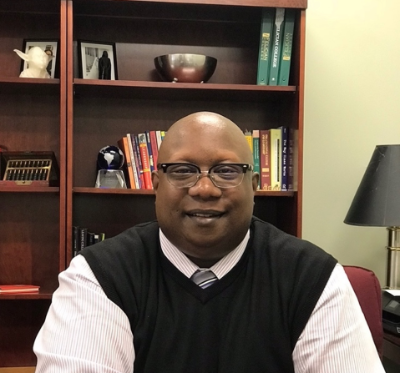
Dr. Ronald Gray currently serves as the Vice President for Student Affairs and Dean of Students at Felician University. He earned his Ph.D. from the University of Pittsburgh with a research focus on Social Justice Education. His work investigates the “becoming” of a social justice educator and how social justice pedagogy impacts both the curriculum as well as co-curricular experiences of students. He continues working to serve students from diverse backgrounds and communities. Through collaboration, an understanding of shared purpose, and collective action, Dr. Gray has worked within university communities in a commitment to diversity as a critical asset in the quality of teaching and learning, inquiry, and innovation.
Drs. Kathleen and Ronald Gray are committed to helping organizations achieve equity and inclusion using effective, student-centered strategies that create transformative educational opportunities for all.
IMPORTANT
- Registration Fee: $150 (FREE for PASSHE Members)
- Conference Dates: May 12-13, 2022
- Extended Abstract/Paper Submission EXTENDED: April 25, 2022
- Email ID to contact conference chair: clarionconf2022@clarion.edu; nsingh@clarion.edu
- Phone number: 814-393-2603
- Full conference registration fees due for presenters EXTENDED: April 25, 2022
Put a ‘Quantity’ (1 paper submission = quantity 1) to make your payment after clicking the "Make a Payment" button below.
More information on REGISTRATION AND PAYMENT
Registration Fee: $150
- Non-PASSHE participants will pay a discounted registration fee of $150, which will cover half-day training session on ‘Global Diversity and Inclusion in Higher Education’, training certificate, conference material, food (one welcome dinner and two lunches) and light breakfast with tea/coffee on two days of the conference, and conference certificate.
- Clarion University and other PASSHE School participants are not required to pay the registration fee.
- Additionally, there will be a ‘Welcome Dinner’ on May 11 for registered participants (One drink with appetizer on the house). Plus, on the third day of the conference (May 14 - Saturday) there will be sightseeing/tour package similar to a wine/brewery trail in Pittsburgh. It is not mandatory, conference attendees are encouraged to participate and spend a day to relax and enjoy the local wine/brewery trails on a self-payment basis.
The organizing committee of the two-day ‘International Conference on Global Diversity and Inclusion in Higher Education’ (ICGDI 2022) is inviting submissions for extended abstracts/full papers. All abstracts/papers will be available as open access online through the Clarion University Archives Digital Repository. A benefit of open access is that the abstracts and papers will be freely accessible to researchers worldwide, possibly resulting in a higher number of citations of your work.
For Hotel Reservations:
Hotel Reservation at Hampton Inn using code C-ICG for getting conference discount
Conference Background
In today’s globalized economy, educational, and social interactions with international students from different parts of the world can provide U.S. students with ‘real educational’ and ‘career’ benefits. International students make campuses and classrooms more vibrant and diverse, plus, it makes economic sense to have international students because for every 7 international students, 3 U.S. jobs are created or supported. About 1.1 million foreign students studied in U.S. in 2018-19 and contributed $44.7 billion to U.S. economy, along with supporting 460,000 jobs. More than 60% students manage funding on their own or their government, which enables schools to offer student aid to other students. Despite the above facts, it is found that many colleges and universities are not able to reach and support the diverse and underrepresented populations of international students, due to lack of awareness and training.
Additionally, despite the economic and social benefits of international students to a university, it is found that international students encounter adjustment difficulties such as culture shock, loneliness, anxiety, discrimination, loss of social support, language barriers, depression, homesickness, and academic adjustments. These factors impact student satisfaction negatively and influence student persistence, retention rates, and graduation rates. International students' satisfaction is linked to their satisfaction with the educational experience, academic success, satisfaction with college including administration, faculty, and campus. According to many studies, the experiences and social integration of international students affects their academic success with the faculty, classroom, and campus community. It is important that faculty members understand the cultural factors that influence the improvement of international students in higher education. It is the responsibility of universities to provide opportunities, resources, and programs to promote academic success for international students. In order to encourage international student's academic success; it is important that faculty members and advisors understand international student needs and prepare to meet students not only academically but also socially and culturally. Thus, this conference can be extremely helpful to fulfill the purpose of global inclusiveness. With an increasingly diverse student population enrolled in education systems, it is imperative that educators and administrators continue to strengthen their skills, knowledge and competencies in diversity, equity, and inclusion to ensure that global education is not only accessible, but designed to support all students.
Therefore, the purpose of this conference is to share ideas on the importance of global diversity and inclusion in higher education sector and to promote learning and training on this critical issue among faculty and students. The goal is to share knowledge, research findings, build community, and collaborate to advance international diversity, equity, and inclusion in global education and cultural exchange.
Submission Tracks and Sub-themes
There are four tracks covering the pedagogy and curriculum development, policies and programs, within the broad conference theme of ‘Global Diversity and Inclusion in Higher Education’. Each track has a list of sub-themes and helpful topics within each sub-theme as listed below:
TRACK#1: Curriculum and Pedagogy:
This track focuses on the best practice of inclusive pedagogy in its narrow and broad sense. We encourage you to share the creative thinking that you use in developing new and /or innovative approaches to cultivating diversity and equity in classroom. This track has three sub-themes:
1. Inclusion for curriculum design:
- Creating an inclusive program for traditionally marginalized and underrepresented learners, cultures, and communities
- Inclusive approach to course design: objectives and outcomes, lesson plans, and assessments
- Strategies to set up an inclusive and diverse classroom, physical and virtual
- Institutional resources and technological support for inclusive curriculum
2. Foreign language studies:
- Role of foreign language studies in promoting global inclusion and cultural diversity in universities today
- Institutional help to underrepresented learners, turning their backgrounds into learning resources
- Foreign language proficiency affecting learners’ academic and professional opportunities
- Higher educational institutions’ foreign language policies and their impact on institutional positioning and success
3. Interdisciplinary and cross-cultural collaboration
- Connections between interdisciplinary approach and inclusive pedagogy
- Building learning community across cultures and disciplines
- Role of peer / team work for inclusive learning
- Cultivating leadership with inclusion at its foundation
TRACK#2: Globalization and Cross-Cultural Inclusion
Higher education has been a driver of globalization, promoting opportunities for scholars, educators, and learners to visit, study, train, research, and work in other countries and around the world. Higher education should also lead the effort of inclusion, cultivating cross-cultural communication and advancing equity for educators and learners of various physical and socio-economic conditions as well as diverse cultural backgrounds: age, gender, ethnicity, race, sexuality, ideology, religion, and so on. Therefore, we would like to invite empirical and conceptual contributions with an aim to review and critique established definitions and practices of globalization and inclusion in higher education, or to propose new ideas on cross-cultural training and development for educational institutions. Through this conference participants would deeply explore the topic of cross-cultural inclusion with an emphasis on practical and actionable strategies that embrace anti-oppressive perspectives. The three sub-themes are:
1. Globalization impact in academia: Globalization is the practice of growing social interaction and connectivity among people around the world, creating economic, social, cultural, political, environmental, scientific and technological interdependence. This interdependence of globalization faces many challenges where adaptability and advanced strategies have shown to influence the success of academic institutions in the new millennium. This category will explore how globalization forces are reshaping higher education. Sub-themes to discuss include:
- Strategies dealing with opposing ideologies and bridging gaps between value systems in educational setting
- Economy and market competition divide as well as integrate institutions
- Expanding global knowledge through international collaboration
2. Inclusion as a key component of diversity: Cultural competence refers to the knowledge, skills and awareness of cultural differences and similarities within, among and between groups. In our current times of globalization, it is important to translate this ‘competence’ into professional practice, so that all social groups are treated with respect and in recognition of their diversity. Topics of discussion to understand and explore cultural inclusion may include:
- Identity issues: racial, ethnic, gender, sexual orientation, religious beliefs, and skills
- The desire to fit in, causes the loss of individuality
- Impact of social groups and majority privilege
3. Multilingualism and its significance for higher education. In today's multilingual, global world, people are communicating not only in English but also in a multitude of other languages. Words from other languages are incorporated in English like the Persian word airline Kiosk, the Indian word Namaste post a yoga workout or the Spanish word cafeteria. Authors are encouraged to explore and discuss how a bilingual or multilingual education have a positive impact on learning and learning outcomes. Sub-themes may include:
- Internet Multilingualism: Languages vary in their structures, meanings and usage. Internet coding limitations of languages and their impact on communication
- Post COVID pandemic online education drawbacks: Global disparities in access to internet. What does this digital divide mean to educators and learners in the age of globalization?
- Generating a cosmopolitan education approach to support immigrant students
TRACK#3: High Impact Practices (HIPs) and Faculty Development
HIPs have been recognized as effective in promoting deep learning and learners’ engagement, particularly learning of and engagement in real-world issues of immediate significance. In other words, HIPs aim at an immersion of learning and living, through which students work to answer important questions that matter to them and to the world they live in, through research and cross-cultural experiences across the globe. It is, therefore, most logical for us to inquire how HIPs can contribute to global diversity and inclusion in higher education through training and instruction that enhances global competence and multicultural awareness among faculty members. That is sharing work on how faculty members can engage students in HIPs is at the core of this conference. Sitting at the table to discuss ways instructors can increase discussion, teaching, learning, research and assessment of topics that increase global understanding in and outside the classroom (in any field) in an informed and confident manner is crucial in forming global citizens. We must address the institutional needs to train faculty in identifying resources for HIPs, advising students on HIP opportunities and benefits, creating, teaching and directing HIPs as led by our own Faculty. In an effort to highlight practices that boost diverse, equitable and inclusive environments, this track encourages paper submissions that include the following three sub-themes:
1. HIP Best practices
This subtheme invites faculty to highlight materials, activities, assignments, cases, trips, art, or any other type of curricular or extracurricular work that has enhanced global competence in higher education. Subtopics to consider are:
- Embedding international topics and discussions in our syllabi.
- Undergraduate Research on International Topics
- Engaging Students in Thinking Globally
- Fostering (and Leading) Programs Abroad
- Embedding inclusive perspective in HIP program design
- Integrating global awareness and local needs for community-based learning, service learning, internship, and capstone course or project
- Developing institutional, professional, and community connections
2. Faculty Professional Development
Participants are expected to share ways their institution, college or department has intentionally increased faculty training in areas of global competence or plans to do so. Aspects to consider are:
- Best Practices on Internationalizing Faculty (in PASSHE or any other university systems).
- Training for faculty to promote global awareness in student advising
- Leading Programs Abroad
- The Office of International Programs and International Faculty-Training
3. Research Abroad
This subtheme invites faculty members to present research or creative collaboration that has to do with international or cross-cultural endeavors such as:
- Building an International Scholarship Network
- International Collaboration in Higher Education
- Directing student research on international topics
- Creating and teaching a course abroad
TRACK#4: Policies and Programs
Health, economic and geopolitical disruptions have a great impact on international education especially with regards to student mobility and enrollment. We would like to invite you to engage in studying and discussing the challenges and prospects of international education. This track has three sub-themes:
- Study Abroad Programs
Discuss and analyze the different facets of study abroad programs in general. Current challenges in the development and sustainability of a successful program at American institutions of different sizes. Sub-themes include, but are not limited to:
- Partnerships with National/International Institutions
- Advising and Support: Predeparture and Abroad
- Program Development and Resilience
- Faculty Involvement in Program Success
- International Student Recruitment
Present the recruitment of international students' strategic planning process as well as the policies and funding challenges that can impact international program success. Discussions of cultural, language, and diversity challenges as well as campus preparedness are welcomed, with the objective to successfully receive international students and maintain consistent and culturally-sensitive services and support. Sub-themes may include:
- International Recruitment Strategic Policies and Planning
- Undergraduate vs Graduate Program Recruitment Strategies
- Partnerships with National/International Institutions
- Campus Preparedness for International Students and their Families
- On-campus/off-campus programs for diversity and integration
- Funding Challenges
- Faculty and Staff Development
- Technology Role in International Education
Most recently, Covid-19 pandemic has made a pedagogic shift in higher education. Communication and program delivery technologies have been challenged with difficulties as well as promises. Within this theme, authors are encouraged to study and discuss the role of technological advancement for possible international program development and delivery. Themes may cover:
- Review of current and prospective educational technologies
- Online Program Development and Delivery
- Impacts of Distance Education on International Programs
- Future Technologies in Online Education
Submit Extended Abstract/Full Paper/Final Paper
Email ID to contact conference chair: clarionconf2022@clarion.edu
Phone number: 814-393-2603